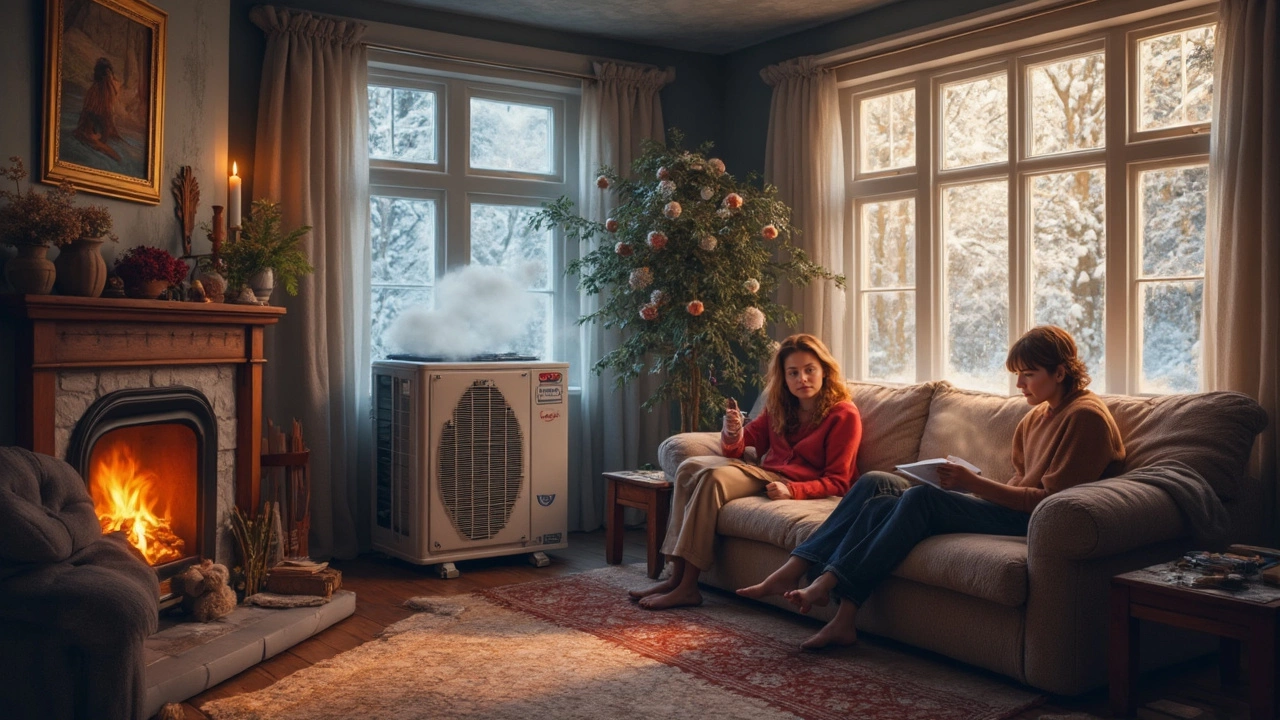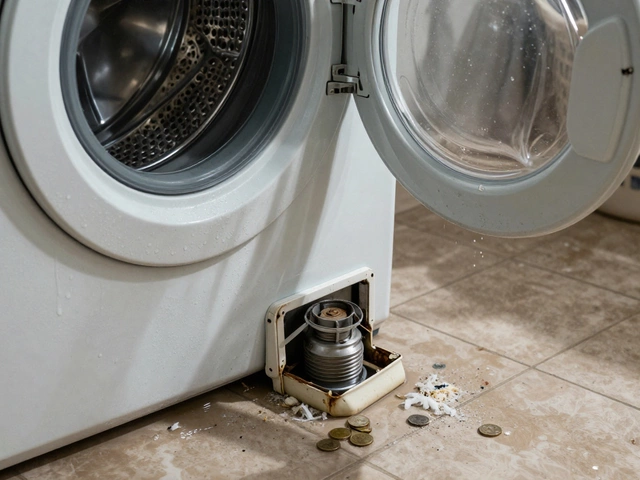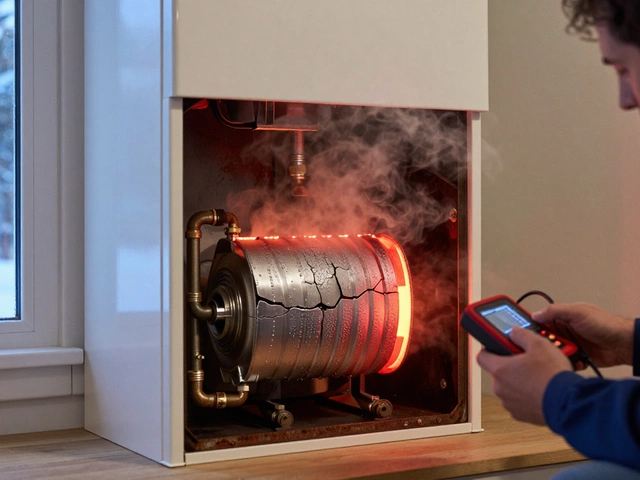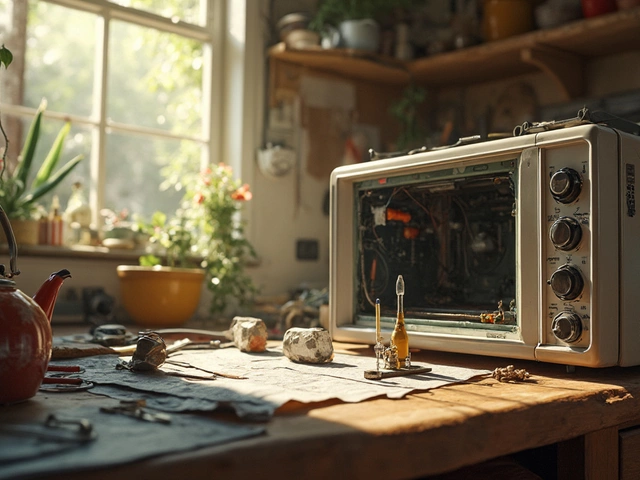Did you know that one of the most common problems with heat pumps is actually frozen coils? Yep, it's not just your freezer that can ice over. When the evaporator coils on your heat pump freeze, it can stop the entire system from working effectively. The kicker is this usually happens when you need it most—during the colder months.
But why do these coils freeze anyway? Often, it can be linked to something like dirty air filters or low refrigerant levels. Both of these situations can mess with the airflow, causing moisture around the coils to freeze. So, changing that filter regularly isn't just busywork; it’s crucial for keeping your heat pump running smoothly.
Now, before you start thinking about calling in the experts, there might be some simple fixes. For instance, if you spot ice on the coils, try turning the system to 'fan only' mode to see if it can defrost itself. If that doesn't work, it's probably time to get a pro involved.
- Introduction to Heat Pumps
- Common Issues and Causes
- Tips for Troubleshooting
- When to Call a Professional
Introduction to Heat Pumps
Heat pumps are a game-changer when it comes to energy-efficient heating and cooling. Unlike traditional systems that generate heat by burning fuel, heat pumps move it from one place to another, using electricity. Fancy science, right? But the cool part (pun intended) is this makes them super-efficient and also good for the environment.
How Does a Heat Pump Work?
Think of a heat pump as a two-way air conditioner. It can pull heat from the outside and bring it inside during winter, and do the opposite in summer. This magic happens thanks to a refrigeration cycle involving a compressor, a couple of coils, and a fan. If you're curious about stats, around 3-4 units of heat can be transferred with just 1 unit of electricity. That's efficiency!
Types of Heat Pumps
- Air Source: Most common and affordable. Uses outside air to heat and cool.
- Geothermal: Uses the earth's constant underground temperature. Pricy up front but big on long-term savings.
- Water Source: Requires a body of water nearby. Used less often but very effective in specific locations.
Knowing these basics is crucial because it helps you understand why issues like frozen coils or low refrigerant levels are such a big deal. If you’re considering installing a heat pump or already have one, this info gives you a head start in troubleshooting or decision-making. Got a cold house? Check your heat pump first.
Common Issues and Causes
Heat pumps are great for keeping our homes warm or cool without burning through tons of energy. But what if they suddenly stop working? Here are some of the most common problems you might encounter and what causes them.
1. Frozen Coils
As mentioned earlier, frozen coils are frequent culprits. Beyond dirty filters and low refrigerant, your unit might struggle if the outside temperature's really low or there's something blocking airflow, like a snowdrift up against the outdoor unit.
2. Thermostat Problems
A malfunctioning thermostat can be a headache. If your heat pump doesn't turn on or heat when it should, always check your thermostat first. It might be as simple as dead batteries or a need for re-calibration.
3. Low Refrigerant
If your heat pump isn’t meeting the set temperatures, low refrigerant might be the reason. It could be due to a leak or just not enough coolant from the start. Either way, it's not something to ignore because it can lead to bigger issues.
4. Strange Noises
Noises like rattling, whooshing, or grinding can signal different problems. Loose parts, debris stuck inside or even a worn-out compressor could lead to loud operations. Ignoring these sounds might worsen the damage.
Electrical Issues
There's always a chance blown fuses or tripped breakers stop your heat pump right in its tracks. If this happens often, it might be pointing to a deeper electrical issue that needs more attention.
| Issue | Potential Cause | Action |
|---|---|---|
| Frozen Coils | Dirty filters, low refrigerant | Clean filters, check refrigerant |
| Thermostat Problems | Dead batteries | Replace batteries |
| Low Refrigerant | Leaks | Get professional inspection |
| Strange Noises | Loose parts | Tighten parts |
| Electrical Issues | Blown fuses | Inspect electrical system |
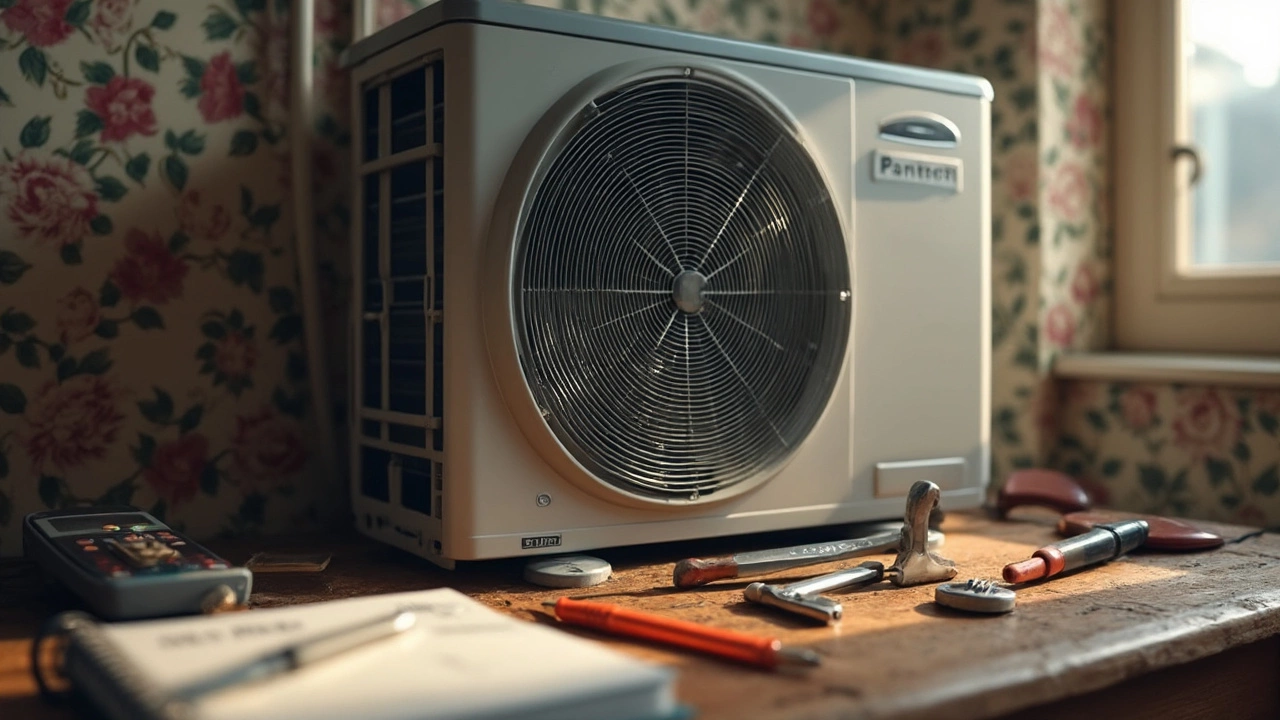
Tips for Troubleshooting
Dealing with a heat pump that's not working right can be frustrating, but sometimes a bit of troubleshooting can save you a service call. Here are some practical steps you can take :
Check the Basics First
Before diving deep, start with the basics.
- Thermostat settings: Ensure your thermostat is set to the correct mode. If it's on 'cool' instead of 'heat' during cold times, there's your first issue.
- Power supply: Check the circuit breakers and the power switch on the indoor and outdoor units. A tripped breaker or a turned-off switch is a simple fix.
Inspect and Replace Air Filters
Dirty or clogged air filters are often culprits for poor performance. Not only do they affect air quality, but they also cause the system to overwork, leading to premature wear and tear.
- Turn off the heat pump to avoid any mishaps.
- Locate the air filter and remove it carefully.
- If it's washable, clean it thoroughly and let it dry before reinserting. If it's a disposable one, replace it with a new filter.
Inspecting and changing your air filter is a quick routine that can help your unit run more efficiently.
Outdoor Unit Troubles
The heat pump relies heavily on the outdoor unit. Make sure it's free of debris like leaves, dirt, and snow. A blocked unit can't release heat properly, leading to inefficiencies.
Try clearing the surrounding area and carefully removing any obstructions.
"Regular maintenance like outdoor unit inspections could extend your heat pump's life by years," says HVAC expert Mark Johnson.
When All Else Fails
After checking these common issues, if your heat pump still isn’t performing as expected, it's likely time for a more in-depth look.
- Refrigerant Levels: Low refrigerant affects efficiency significantly. This usually requires a professional who can safely handle the issue.
- Check for Leaks: Unusual noises or visible leaks around your heat pump may signal bigger problems that need professional attention.
When you experience these problems, remember that dealing with refrigerants or internal components without the right knowledge could void warranties or cause damage.
When to Call a Professional
We all like to feel handy, but sometimes, tackling a heat pump repair on your own isn’t the best route. So when should you get a pro involved? If your heat pump's acting more like a stubborn teenager than the efficient energy-saver it's supposed to be, take a moment and check this out.
Strange Noises or Smells
Ever heard a strange clanking or banging noise coming from your system? How about weird smells? This isn't a haunted house—it probably means there's something wrong internally. Whether it's a motor issue or a burnt-out component, noise and odor often spell trouble for your pump.
Consistently High Energy Bills
See a spike in your energy bills but can't figure out why? Well, it could be your heat pump working harder than it needs to because of a fault. If cleaning filters doesn’t lower the bills, it’s time for a professional inspection.
Inconsistent Temperatures
If some rooms feel like the Sahara while others are as chilly as Antarctica, that's a red flag. Uneven heating or cooling usually means there's a deeper issue at play—possibly with the thermostat or the heat pump's capacity.
What a Professional Can Do
- Troubleshoot complex issues: A certified technician has the tools and knowledge to get to the root of the problem fast.
- Safety checks: Experts ensure electrical components are safe and functioning, preventing potential hazards.
- Extend lifespan: Proper maintenance can add years to your unit, saving money on early replacement.
Feel free to roll up your sleeves for simple tasks, but don't hesitate to call a pro when these signs pop up. It’ll save you time, money, and prevent a whole lot of headaches down the line.
